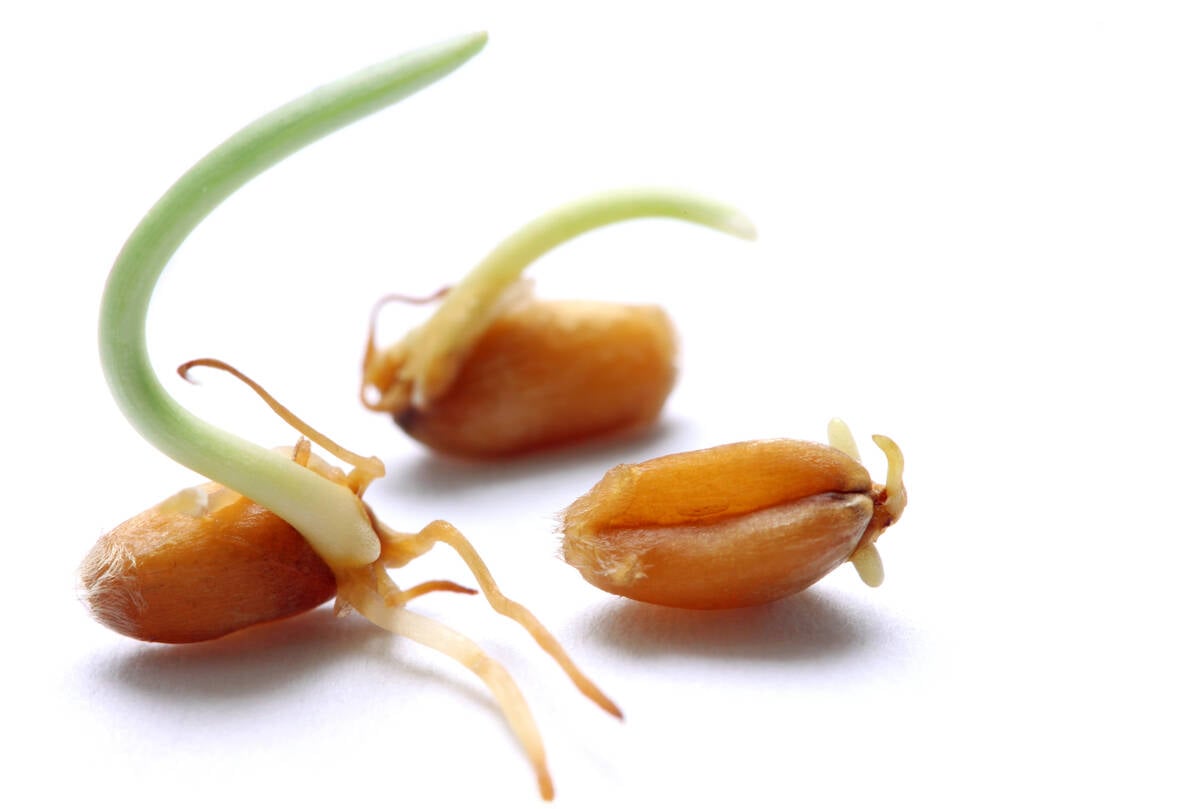Hunt farm operators and the law that allows them to exist are under public attack in Saskatchewan.
The International Fund for Animal Welfare is running a campaign of radio ads calling hunt farms and the spring bear hunt “cruel and unethical” activities.
“It’s like shooting something on the top of a billiard table,” said Rob Sinclair, of the IFAW, about hunt farms. “It’s time for a political debate on this issue.”
Some Saskatchewan elk and deer producers offer hunters the chance to bag an animal in large, fenced areas. American hunters are willing to pay thousands of dollars for this.
Read Also

Manitoba farmers fight sprouted wheat after rain
Rain in mid-September has led to wheat sprouting problems in some Manitoba farm fields.
Some producers see hunt farms as being good places to make money by sending their old or culled animals.
Cathy Lauritsen of the Regina Humane Society, an organization that supports the IFAW, said she hopes the radio campaign reaches city dwellers who don’t know hunt farms exist.
“I think the people of Saskatchewan would be repulsed by it,” said Lauritsen. “People should at least know this is going on.”
She and Sinclair said a hunt farm is not the same as a feedlot and not the same as hunting.
“It turns the death of a domesticated animal into a sport,” said Sinclair, who said elk and deer on hunt farms have lost the fear of humans that gives wild animals a fairer chance against hunters.
Lauritsen said the humane society does not object to domestic animals being raised and slaughtered for food. And it does not oppose hunting. But mixing the two is wrong.
Lauritsen said shooting an animal in an enclosure for fun shows a disregard for animal life that could endanger other animals: “It’s a real slippery slope.”
Some Texas hunt farms offer hunters the chance to shoot former zoo animals, such as lions and leopards, and some countries in Africa turn a blind eye to shooting endangered animals.
But Ken Schmidt, of the provincial agriculture department, said wildlife and endangered species are not threatened by hunt farms.
“People have strong feelings about this,” said Schmidt.
“We respect those opinions, but we feel game farming and trophy ranching are legal business activities.”
He said animal welfare is not hurt by game farming. Humane treatment laws apply to hunt farms as they do to the spring bear hunt.
The IFAW attacks the spring bear hunt for orphaning cubs whose mothers are shot. The organization says it polled 400 Saskatchewan residents to gauge their opinions on hunt farms and on the spring bear hunt.
Fifty-five percent said the spring bear hunt should be scaled back or banned, while 82 percent were against any mother bears being shot in the spring, the IFAW said.
But Marv Hlady, of the provincial environment department, said surveys can be skewed by the questions they pose.
“You can word a poll almost any way you want to get the response you desire,” said Hlady.
Lauritsen said shooting groggy, famished bears in the spring doesn’t seem very sporting, nor does shooting domestic elk and deer inside a fenced-in area.
But Hlady said animals on hunt farms suffer no more than animals shot during traditional wilderness hunting and that’s what the IFAW should recognize.















